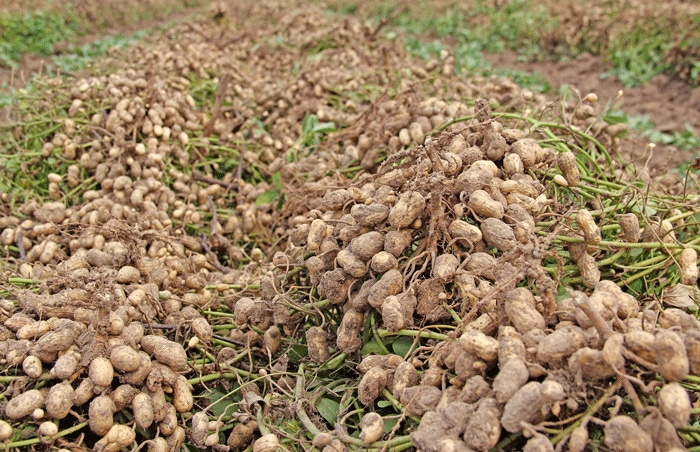
Georgia Peanut Commission increases funding for research projects
• The research programs primarily focus on peanut breeding for higher yield and improved quality; economics; conservation methods; irrigation and water management; pests, weed and disease management; and allergen free peanuts.• However, GPC is stepping up their efforts by funding research focusing on the development and evaluation of new cultivars with an emphasis on disease resistance genetic markers, using long range internet connectivity to improve management on the farm, and incorporating probiotics into peanut food products.
March 29, 2013

The Georgia Peanut Commission (GPC) board of directors has approved $292,500 in new research project funding for the 2013-14 research budget year.
This action was taken during the commission’s March board meeting.
The research projects approved include 24 project proposals submitted from the University of Georgia and USDA, Agricultural Research Service.
“We are proud of our close relationship and partnership with research institutions in the state,” says Donald Chase, Georgia Peanut Commission Research Committee chairman.
“Peanut growers are pleased to invest in the future by providing monetary support for research and education that has continued to demonstrate a return on our investment. Due to the tremendous success enjoyed by Georgia peanut farmers in 2012, we were able to increase research funding in 2013.”
Georgia’s peanut growers invest $2 per ton annually toward programs of GPC which includes research, promotion and education. Research comprises 22 percent of available funds in the commission’s budget.
“The importance of peanut producers’ investments in research cannot be underestimated,” says Emory Murphy, GPC Research Committee secretary. Murphy noted that peanut research and Extension programs have contributed to five consecutive state record yields.
“Cultivars planted by growers today are producing 1,000 pounds per acre more than the cultivars they were growing five or six years ago,” Murphy says.
“We have also seen the state record increase 1,000 pounds per acre in just one year!”
The growth and success of Georgia’s peanut industry is unparalleled in agronomic standings these past five decades since the GPC was established.
This has been no accident. Georgia peanut growers have seen yields increase from 1,000 pounds per acre in 1961 to over 4,500 pounds per acre today — a 450 percent increase!
“This is a testament to our research, education efforts and our growers,” Chase says.
“These new, higher yielding and disease resistant varieties we are developing are available to all the other states, but Georgia farmers simply do an excellent job of controlling weeds, pests, and diseases, and managing cultural practices and resources.”
The research programs primarily focus on peanut breeding for higher yield and improved quality; economics; conservation methods; irrigation and water management; pests, weed and disease management; and allergen free peanuts.
However, GPC is stepping up their efforts by funding research focusing on the development and evaluation of new cultivars with an emphasis on disease resistance genetic markers, using long range internet connectivity to improve management on the farm, and incorporating probiotics into peanut food products.
Chase says it is obvious we must continue to press for public or government support as we have lost 13 peanut scientists in Georgia over the past 10 years and many of those have not been replaced.
The Georgia Peanut Commission requested funding from the Georgia Legislature in 2012 for a state research entomologist, since the position has been vacant for a number of years and farmers were having an increased amount of insect damage to their peanut crop.
“We applaud the state Legislature for funding the position and the University of Georgia for filling this critical research position,” Chase says.
For additional information and a complete list of the research projects funded by the Georgia Peanut Commission visit www.gapeanuts.com.
Like what you’re reading? Subscribe to Southeast Farm Press Dailyand get the latest information right to your inbox!
You might also like:
Record year for meat, poultry exports boosts U.S. soy demand
Chinese cotton policy — Social stability, not trade
Peanut growers face major price pressure
Getting grain yields up is a priority for Southeast growers
You May Also Like



